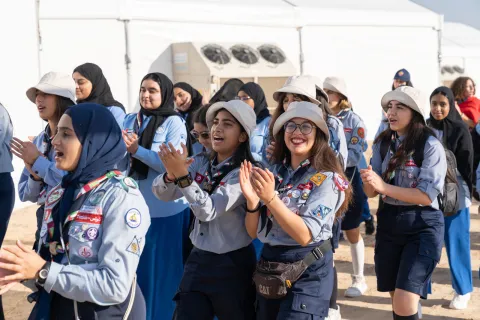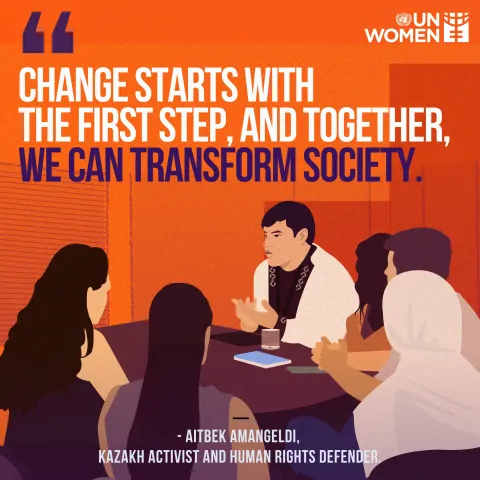World Scouting joins campaign to end gender-based violence

By Emily Jones, Youth Representative - Gender, World Scouting
Gender-based violence is one of the world’s most pervasive human rights violations, with at least one in three women and girls experiencing it in their lifetimes - a statistic likely underestimated due to underreporting. To combat this global problem, the United Nations leads the 16 Days of Activism Against Gender-Based Violence, running from 25 November to 10 December, a campaign that shines a spotlight on the issue and provides tools for action.
World Scouting has proudly joined this campaign, using it to highlight some of the ways that Scouts can address gender-based violence in their communities. As role models and active citizens, Scouts have a responsibility to help create a safer world for women and girls. While this issue can feel overwhelming, there are simple ways that Scouts can make a difference – starting with education, empowerment, and action.
Educate to empower
Understanding gender-based violence is the first step towards dismantling it. Defined by the United Nations as violence directed at women because they are women or because it affects them disproportionately, gender-based violence spans physical, verbal (including hate speech), psychological, sexual and socio-economic. Domestic violence and sexual harassment can exist within any of these categories.
Education is important but it must also be age-appropriate and adapted to specific audiences. Themes of violence can be heavy, and if young people are educated incorrectly, they can be left feeling upset rather than empowered. If you are unsure about which element of gender-based violence to educate your Scouts on, the ‘identify, support, report’ framework is a great place to start.

Identify, support, report
With most violence against women committed by an intimate partner, Scouts can also be taught to spot red flags of intimate partner violence. These may include:
- Becoming withdrawn.
- Their partner makes decisions for them, such as what they can wear, eat, spend money on or who they can spend their time with.
- Their partner insults or belittles them in public.
- Having unexplained marks or bruises.
This list can be adapted to suit different age groups. A more detailed list is available on the Women’s Aid website.
By making young people aware of the signs, they are more likely to be able to identify if they are being abused by a partner or may be more encouraged to reach out to friends who are showing signs of being abused.
A UN Women report found that adolescent girls were more likely to become victims of intimate partner violence than adult women, stating that by the time they are 19 years old, almost 1 in 4 adolescent girls (24%) who have been in a relationship have already been physically, sexually, or psychologically abused by a partner. It’s crucial that young people understand that they should never tolerate these behaviours in a relationship.
Offering support can sometimes feel challenging, especially if the victim’s means of communication are being controlled. UN Women has detailed the signs of abuse and the ways you can support victims.
Although helpful for adults, many of these techniques may not be accessible to children and teens. Young people should also understand that they are not responsible for resolving these situations. Instead, your Scouts should be encouraged to tell a trusted adult if they suspect a friend or family member is suffering from partner violence.
It can be helpful to brainstorm with your Scouts who the trusted adults in their lives are, such as parents, teachers, Scout leaders, and the police. Beyond law enforcement, you can also make your Scouts aware of various local charities and organisations, such as Lila.help, that support victims of gender-based violence.
The 16 Days of Activism Against Gender-Based Violence is a powerful platform to raise awareness, have important conversations, and spark change. Scouts and Scout leaders can take part and join our campaign by:
- Educating themselves and others to spot the signs of intimate partner violence and enabling them to reach out to victims.
- Destigmatising the topic of abuse and violence by speaking out and raising awareness.
- Sharing a photo of yourself holding a sign with a message of solidarity using the hashtag #NoExcuse and tagging World Scouting.
- Wearing orange, the symbolic colour of resistance against gender-based violence.
Gender-based violence is entirely preventable – but only if we act. Together, we can advocate for a better world where everyone feels safe and respected.

